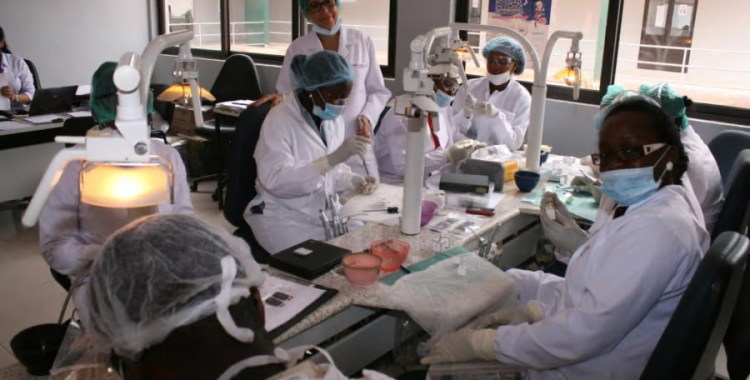After an external assessment of the 115 Health Sciences courses taught at 49 universities, the National Institute for Assessment, Accreditation and Recognition of Higher Education Studies excluded 60 courses, mainly due to a lack of good qualitative and quantitative performance.
Adriano Manuel argued that the courses should continue while conditions at the institutions improve, during a meeting promoted by the Angolan Students Movement (MEA) on "The Problem of Closing Medicine and Health Sciences Courses at Angolan Universities".
"Couldn't we solve the problem in another way, by continuing to train while conditions improve? Is that possible or not? Why close medical schools?", he asked.
The trade unionist said that the Government unilaterally decided to close the courses, stressing that teachers at the Faculty of Medicine at Agostinho Neto University, a public institution, do not agree with this measure.
"Many of them are not happy with the closure of the faculty, they will earn money for two years without working", said the president of the National Union of Angolan Doctors, referring to the two-year deadline for institutions to present improvements. Adriano Manuel reiterated that if there were "political will" the quality of the courses could be improved without closing the institutions, proposing that recently opened hospitals in Luanda be temporarily used for training staff. According to Adriano Manuel, prefabricated structures could be temporarily built in these hospitals to serve as classrooms for students in the basic cycle and the same could be done in other provinces. The pediatrician said that the country has teachers, many of whom graduated with public funds, with training that allows them to teach, but they are working in private clinics. Angolan doctor Jeremias Agostinho described as necessary, especially in private higher education institutions, the government's assessment, which led to the closure of 60 health courses due to lack of quality. The university professor argued that there are several organizational weaknesses, especially in private institutions, citing the lack of laboratories, internship problems and the quality of staff.
Jeremias Agostinho added that more than two years ago the Ministry of Higher Education, Science, Technology and Innovation produced an internal evaluation guide, with some having invited international partners for this purpose, but others not, lamenting the corruption factor.
"When were we going to start with the rigorous evaluation process", questioned this university professor, lamenting the current "trivialization" of higher education and agreeing that "at some point there would have to be consequences".
"How long are we going to let these deficiencies go unnoticed, especially in private institutions?", he asked, admitting that this measure "will cause harm, but it was necessary".
As for public institutions, Jeremias Agostinho said that the ministry itself was responsible for reinforcing the resources, but it did not do so.







